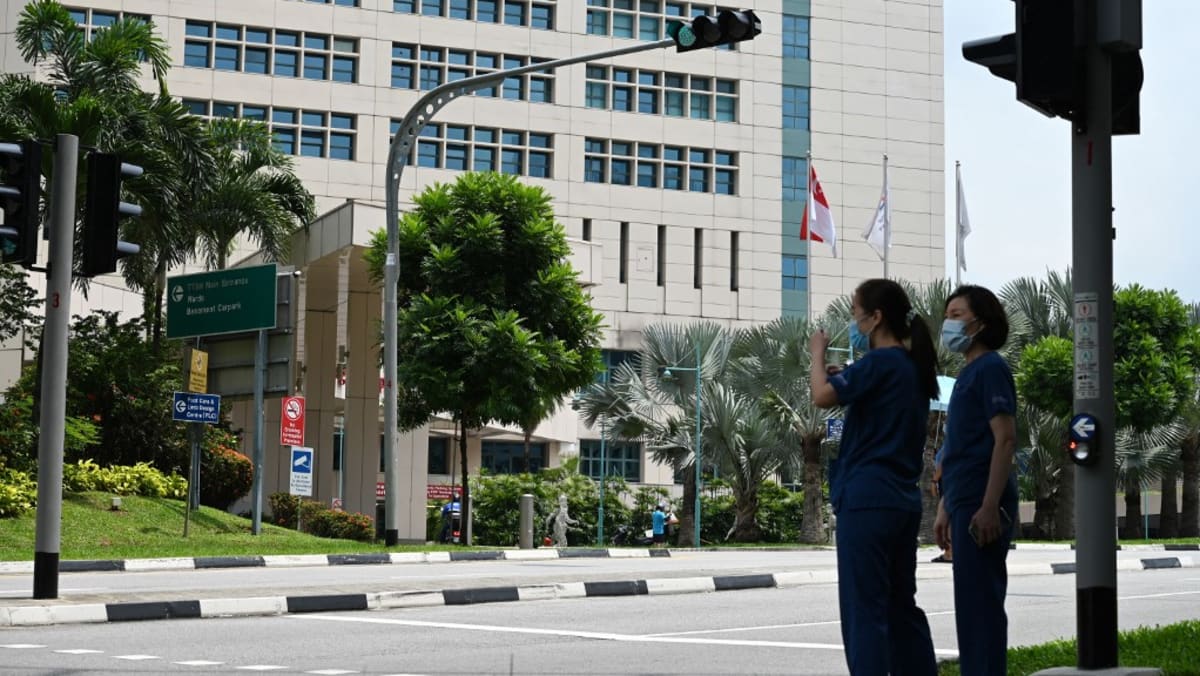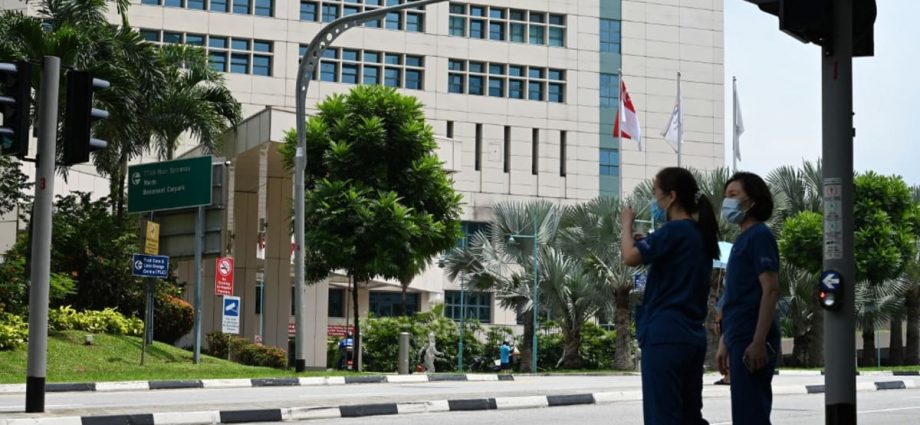
SINGAPORE: A man who sued Tan Tock Seng Hospital (TTSH) and three doctors over the death of his mother had his case dismissed by the High Court on Thursday (Oct 13).
Justice Choo Han Teck found that the hospital and the doctors had not been negligent in their treatment of 74-year-old Tan Yaw Lan, who died in May 2018.
Madam Tan’s son Chia Soo Kiang had argued that doctors Dorai Raj D Appadorai, Lee Wei Sheng and Ranjana Acharya had been negligent in diagnosing his mother at TTSH’s emergency department and on admission to a ward.
Mr Chia said the doctors had failed to realise that Mdm Tan was having an acute heart attack when she arrived at the hospital.
Mr Chia also said the doctors and nurses were negligent in taking his mother for a shower against the family’s wishes, not resuscitating her promptly after she collapsed and not obtaining consent from Mdm Tan when they stopped her medication for her heart, high blood pressure and hypertension.
Mr Chia sued the three doctors and TTSH for S$800,000.
Mdm Tan had a history of chronic heart disease, type 2 diabetes, stage four chronic kidney disease, hypertension, high cholesterol and heart failure among other ailments.
On Apr 20, 2018, she was taken in an ambulance to the emergency department of TTSH due to a persistent fever. She was diagnosed to have an infection of an unknown source.
Mdm Tan began to show improvement by Apr 22.
On Apr 23, an intern nurse helped her with showering and was in the midst of dressing her when Mdm Tan went limp and lost consciousness.
Other staff alerted to the incident helped with resuscitation but she did not regain consciousness. She died three weeks later on May 13, 2018.
Mdm’s Tan family had declined to have an autopsy performed; and a coroner’s report produced later stated that Mdm Tan died of ischaemic heart disease with pneumonia – which was likely the source of her infection.
Her son’s lawyer Clarence Lun argued that Mdm Tan had died from an acute heart attack, but Justice Choo said this was unclear.
Mr Lun had relied on the evidence of two experts – a cardiologist and a heart surgeon – to argue that Mdm Tan had type 1 myocardial infarction when she was admitted to hospital.
Type 1 myocardial infarction is an acute heart attack and an emergency with shortness of breath and chest pain as key signs. It requires immediate intervention.
On the other hand, a type 2 myocardial infarction causes a different degree of damage and would be managed by treating the underlying condition.
At the general ward, Mdm Tan was seen by Dr Lee, then a first-year house officer, and Dr Ranjana, a senior consultant.
Dr Ranjana agreed with Dr Lee and another doctor that Mdm Tan had an infection complicated by other conditions, including type 2 myocardial infarction.
But Dr Ranjana did not feel the need to refer Mdm Tan to a cardiologist then, as the underlying cause of the type 2 myocardial infarction was the infection, which was being treated.

